Abstract
A study of placebo treatment of acute symptomatic urinary tract infection in non-pregnant women showed that about 80% obtained sterile urine spontaneously within 5 months. About one-half of these had recurrent infection within a year.
Antimicrobials produced a high immediate cure rate, but only 45% maintained sterile urine for 2 years. The recurrence rate was highest during the first 2 months after treatment, and thereafter nearly constant during the subsequent 20 months. Twenty-nine percent of recurrences were recrudescences and 71% reinfections. About one-sixth of the patients had a very high recurrence rate, 2·6 infections/year, as compared with 0·32/year in the remainder. Nearly all of these patients had their first recurrence within 5 months of the initial treatment. The probability of recurrence increased with the number of previous infections. Some patients, however, after a period with many recurrences, showed a remarkable decrease in recurrence rate.
If the aim of treatment is to keep periods of bacteriuria to a minimum, it is necessary to do frequent urine cultures for at least 6 months after elimination of bacteriuria.
Full text
PDF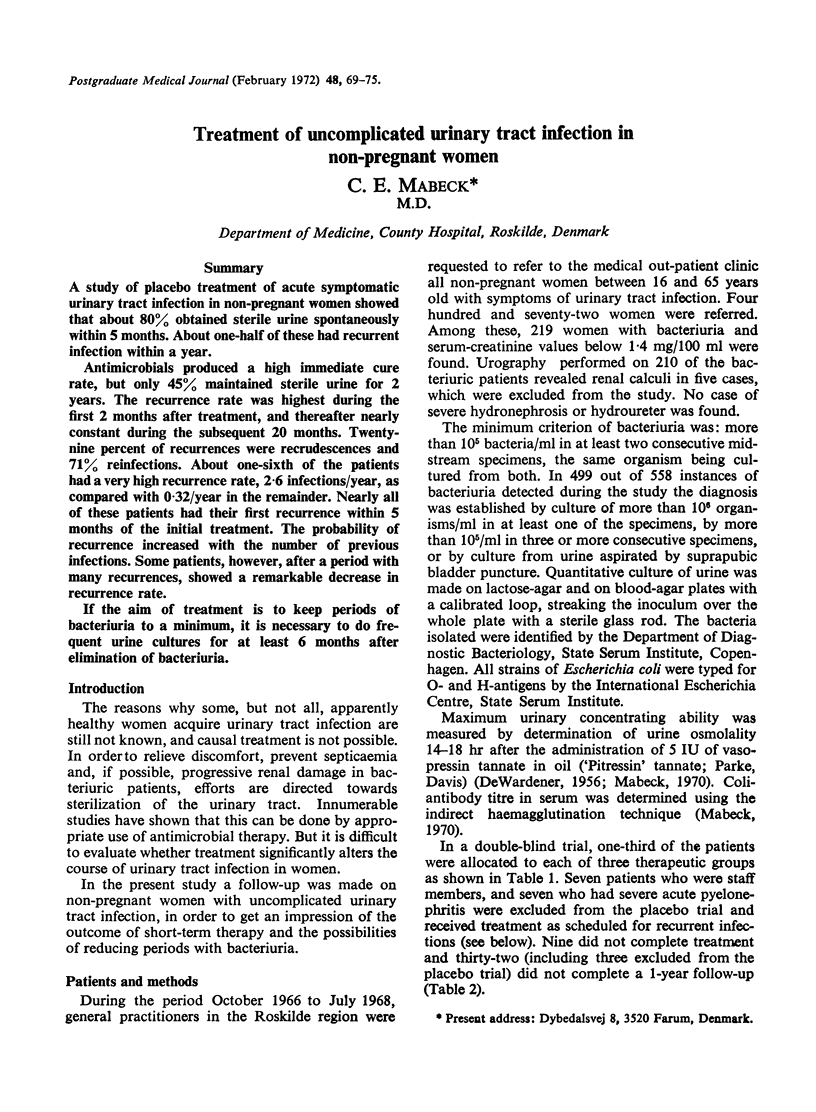
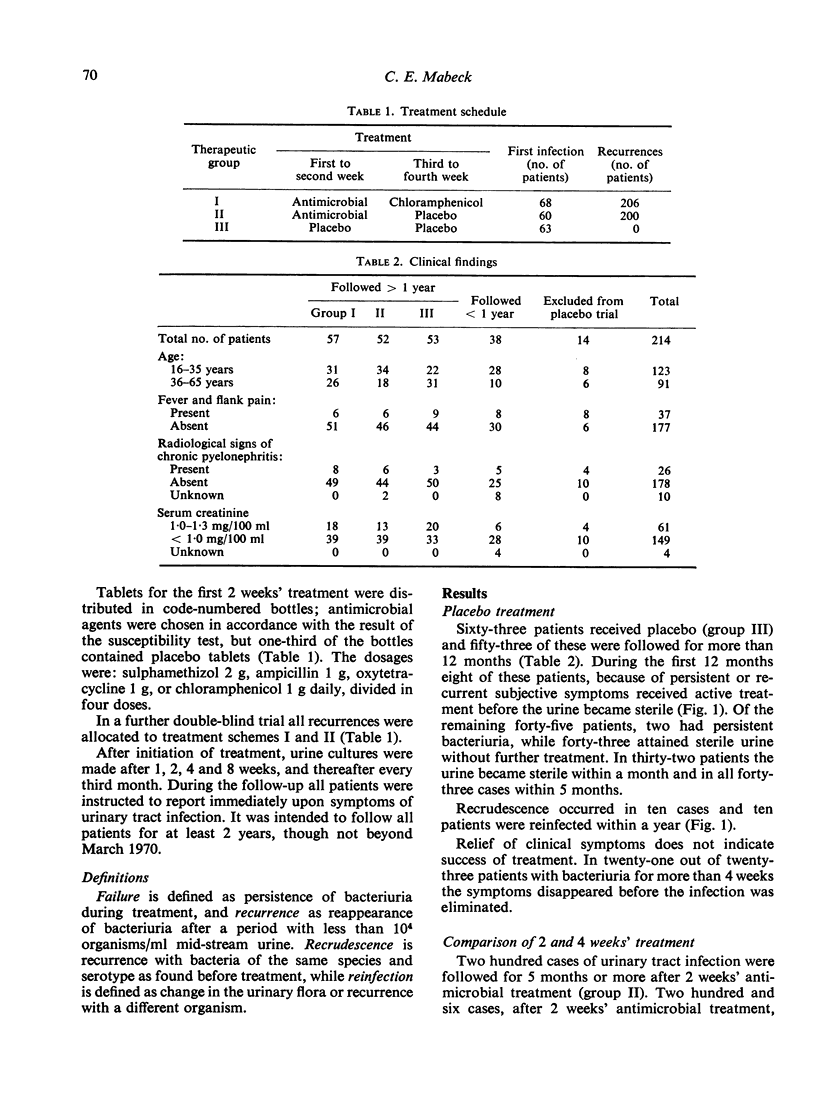
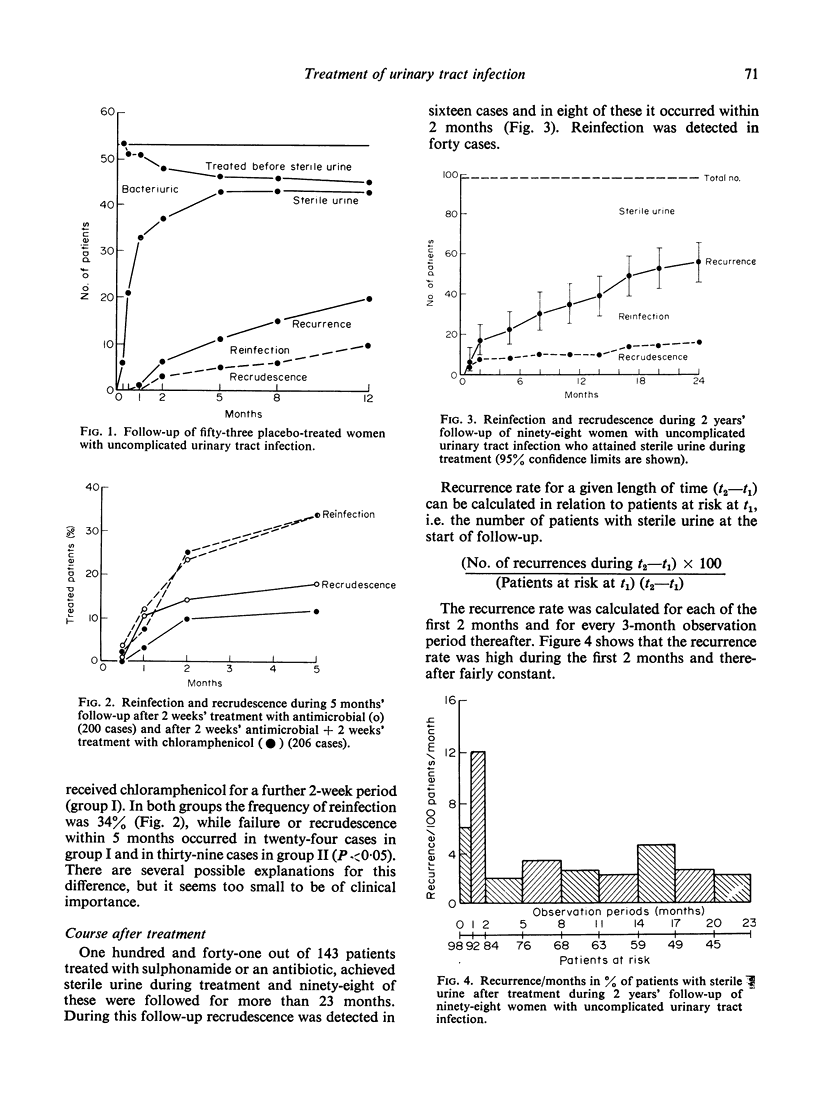
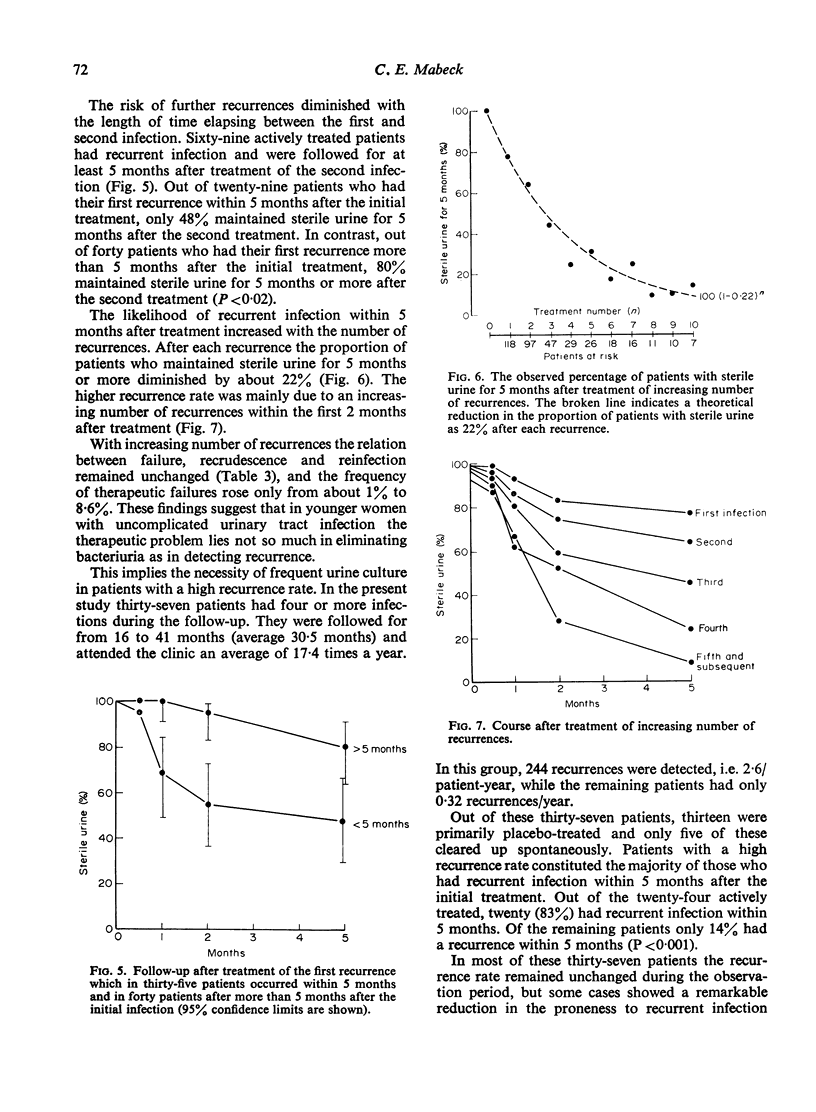
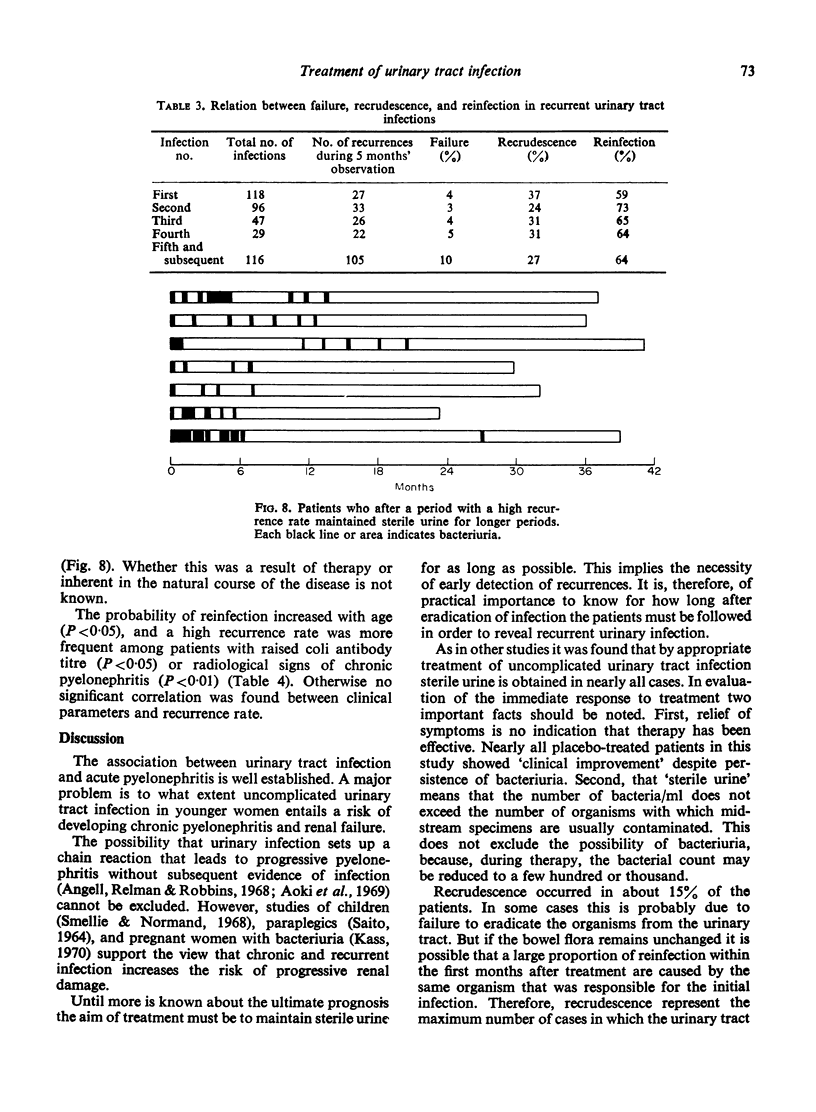
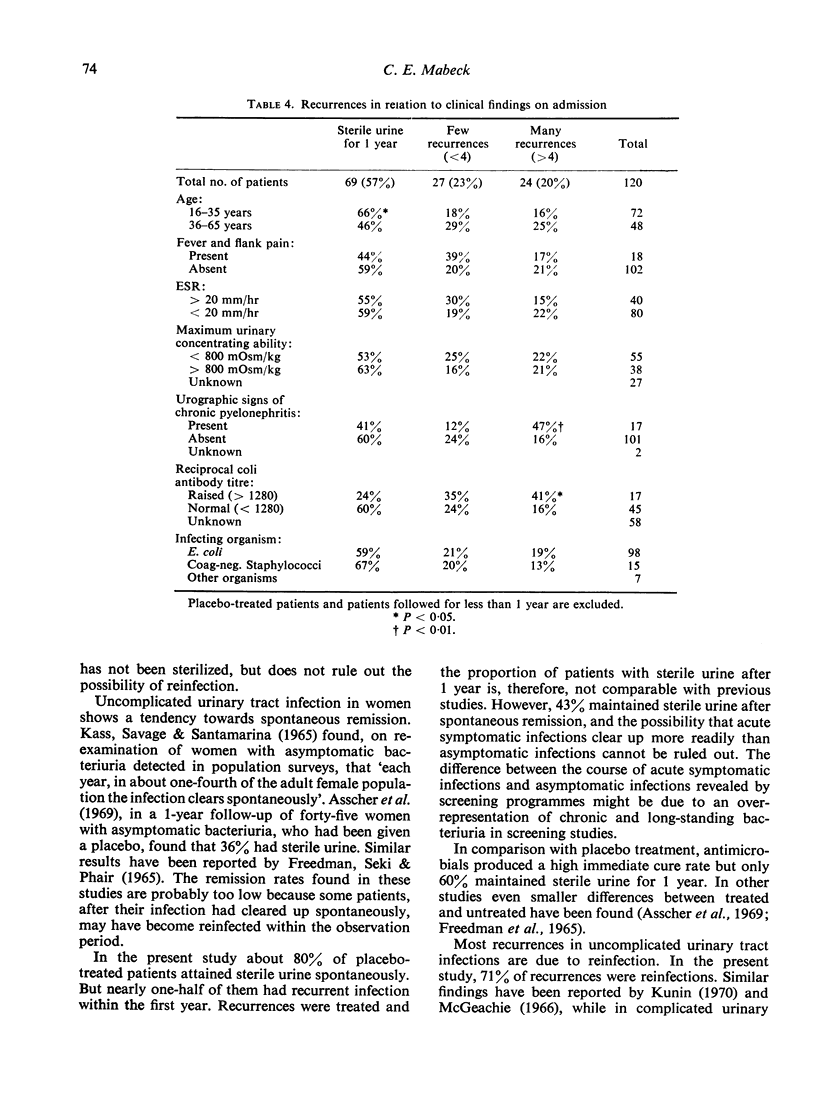
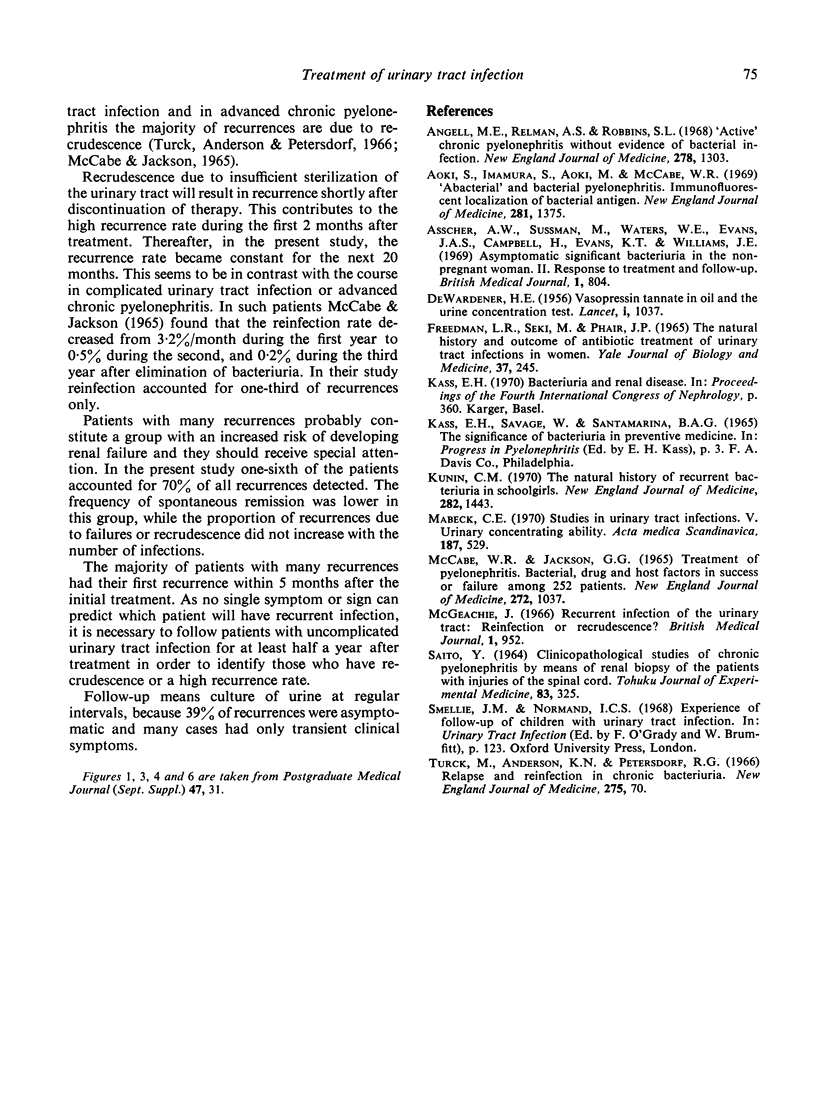
Selected References
These references are in PubMed. This may not be the complete list of references from this article.
- Angell M. E., Relman A. S., Robbins S. L. "Active" chronic pyelonephritis without evidence of bacterial infection. N Engl J Med. 1968 Jun 13;278(24):1303–1308. doi: 10.1056/NEJM196806132782401. [DOI] [PubMed] [Google Scholar]
- Aoki S., Imamura S., Aoki M., McCabe W. R. "Abacterial" and bacterial pyelonephritis. Immunofluorescent localization of bacterial antigen. N Engl J Med. 1969 Dec 18;281(25):1375–1382. doi: 10.1056/NEJM196912182812501. [DOI] [PubMed] [Google Scholar]
- Asscher A. W., Sussman M., Waters W. E., Evans J. A., Campbell H., Evans K. T., Williams J. E. Asymptomatic significant bacteriuria in the non-pregnant woman. II. Response to treatment and follow-up. Br Med J. 1969 Mar 29;1(5647):804–806. doi: 10.1136/bmj.1.5647.804. [DOI] [PMC free article] [PubMed] [Google Scholar]
- FREEDMAN L. R., SEKI M., PHAIR J. P. THE NATURAL HISTORY AND OUTCOME OF ANTIBIOTIC TREATMENT OF URINARY TRACT INFECTIONS IN WOMEN. Yale J Biol Med. 1965 Feb;37:245–261. [PMC free article] [PubMed] [Google Scholar]
- Kunin C. M. The natural history of recurrent bacteriuria in schoolgirls. N Engl J Med. 1970 Jun 25;282(26):1443–1448. doi: 10.1056/NEJM197006252822601. [DOI] [PubMed] [Google Scholar]
- Mabeck C. E. Studies in urinary tract infections. V. Urinary concentrating ability. Acta Med Scand. 1970 Jun;187(6):529–537. doi: 10.1111/j.0954-6820.1970.tb02980.x. [DOI] [PubMed] [Google Scholar]
- McGeachie J. Recurrent infection of the urinary tract: reinfection or recrudescence? Br Med J. 1966 Apr 16;1(5493):952–954. doi: 10.1136/bmj.1.5493.952. [DOI] [PMC free article] [PubMed] [Google Scholar]
- SAITO Y. CLINICOPATHOLOGICAL STUDIES OF CHRONIC PYELONEPHRITIS BY MEANS OF RENAL BIOPSY OF THE PATIENTS WITH INJURIES OF THE SPINAL CORD. Tohoku J Exp Med. 1964 Sep 25;83:325–341. doi: 10.1620/tjem.83.325. [DOI] [PubMed] [Google Scholar]
- Turck M., Anderson K. N., Petersdorf R. G. Relapse and reinfection in chronic bacteriuria. N Engl J Med. 1966 Jul 14;275(2):70–73. doi: 10.1056/NEJM196607142750203. [DOI] [PubMed] [Google Scholar]


